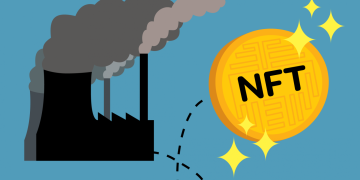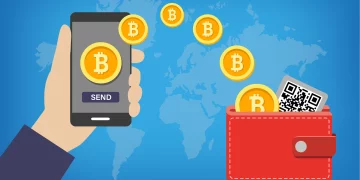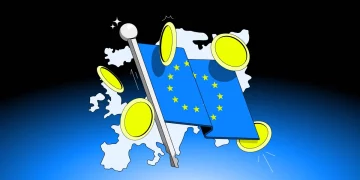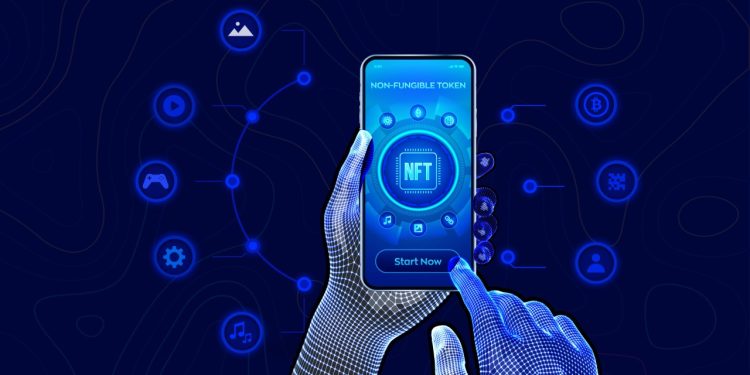Introduction
In recent years, Non-Fungible Tokens (NFTs) have shifted from a niche digital asset to a mainstream phenomenon that is captivating not just digital art enthusiasts but also major corporations and brands. NFTs, by their very nature, offer unique digital ownership, enabling items to be traded, collected, and verified in ways that were previously unimaginable. What was once considered a speculative investment tool or a digital art movement has now evolved into a powerful marketing tool for brands to engage consumers, create exclusivity, and foster deeper connections.
Many well-known brands have started to integrate NFTs into their marketing strategies, using them as a way to offer unique digital experiences, launch limited-edition products, and strengthen their brand identity. NFTs represent a profound opportunity for brands to connect with a new generation of consumers—especially those who are tech-savvy and engaged in the world of cryptocurrency, blockchain, and digital assets.
This article will explore how NFTs are being integrated into branding and marketing efforts across various industries. We will look at the specific ways brands are using NFTs to innovate in product launches, consumer engagement, and brand loyalty. Additionally, we will explore the opportunities and challenges associated with this emerging trend and consider the future of NFTs in marketing.
1. Understanding NFTs and Their Potential in Marketing
1.1 What Are NFTs?
Non-Fungible Tokens (NFTs) are digital tokens that represent ownership of a unique asset on the blockchain. Unlike cryptocurrencies such as Bitcoin or Ethereum, which are fungible (i.e., interchangeable with one another), NFTs are non-fungible, meaning each token is distinct and cannot be replicated. These tokens are usually tied to digital files, such as images, videos, music, or even in-game items, and are bought and sold using blockchain technology, most commonly on the Ethereum network.
What sets NFTs apart in the context of marketing is their ability to represent unique, verifiable ownership of digital assets. For brands, NFTs offer an innovative way to engage consumers by creating exclusive digital products, rewarding loyal customers, and enabling new forms of collectible marketing.
1.2 How NFTs Are Transforming Marketing
NFTs present an entirely new paradigm in marketing, enabling brands to engage with customers in ways that go beyond traditional advertising. Rather than simply selling products, brands can now use NFTs to create exclusive experiences or digital collectibles that offer consumers something tangible and valuable in the digital world.
For example, an NFT could represent an exclusive event ticket, a limited-edition product, or a digital version of a physical product. The ownership and scarcity of NFTs add value, while the ability to trade or resell them creates a dynamic secondary market. As more brands explore the potential of NFTs, we are seeing an increasing trend of brands using NFTs to forge deeper connections with customers, build brand loyalty, and even create new revenue streams.
2. Brands Integrating NFTs into Their Marketing Strategies
2.1 Creating Digital Collectibles and Limited Editions
One of the most common ways brands are leveraging NFTs is through the creation of limited-edition digital collectibles. These can include exclusive art, special-edition fashion items, or rare products that are only available to NFT holders. This approach taps into the growing culture of scarcity and exclusivity, which is fundamental to the appeal of NFTs.
Case Study: Gucci and Digital Fashion
In the fashion industry, high-end brands like Gucci and Balenciaga have begun experimenting with NFTs as part of their digital fashion collections. Gucci created limited-edition digital sneakers that can be purchased and worn in virtual spaces, but the ownership of these shoes is represented by an NFT. This innovative approach not only creates new avenues for fashion sales but also appeals to younger, tech-savvy consumers who are heavily engaged in virtual spaces like the metaverse.
The scarcity of these digital items, combined with their high-end status, creates an exclusive brand experience for consumers. Limited-edition NFTs thus provide an opportunity for brands to engage in digital luxury marketing, where the uniqueness and exclusivity of a product matter just as much in the virtual world as they do in the physical world.
2.2 NFTs as Access to Exclusive Experiences
Brands are also using NFTs as a tool to unlock exclusive experiences for customers. By purchasing certain NFTs, consumers gain access to special events, experiences, or services that would not otherwise be available to the general public. This could range from a private concert to a VIP meet-and-greet with a celebrity, or even an exclusive product drop.
Case Study: Kings of Leon and NFT Album Releases
The band Kings of Leon made history in 2021 by releasing their album “When You See Yourself” as an NFT. They offered special NFT editions of the album, which not only included the music itself but also exclusive perks, such as front-row tickets to future concerts, backstage access, and exclusive album artwork. This move allowed fans to not only support the band through music purchases but also gain exclusive experiences and long-term value from owning the NFT.
For brands, this creates an entirely new way to reward loyalty and offer value beyond the product itself. By offering access to memorable experiences, brands deepen the emotional connection with their customers.
2.3 Leveraging NFTs for Community Engagement and Loyalty
NFTs provide an excellent way for brands to build communities and brand loyalty. By issuing NFTs as part of a loyalty program, brands can reward long-term customers with unique assets, granting them access to special rewards, exclusive events, or even discounts on future purchases. NFTs act as a digital badge of loyalty, signifying the customer’s commitment to the brand.
Case Study: Starbucks and NFT-Based Loyalty Programs
In a significant move, Starbucks is exploring the use of NFTs to enhance its loyalty programs. By integrating NFTs into its existing rewards system, Starbucks could offer exclusive digital collectibles that are tied to rewards points, allowing customers to unlock personalized experiences, special discounts, or early access to new product launches.
NFT-based loyalty programs not only engage customers but also incentivize them to continue interacting with the brand. Customers can accumulate, trade, or showcase their NFTs, creating an interactive and dynamic experience that enhances the overall brand relationship.
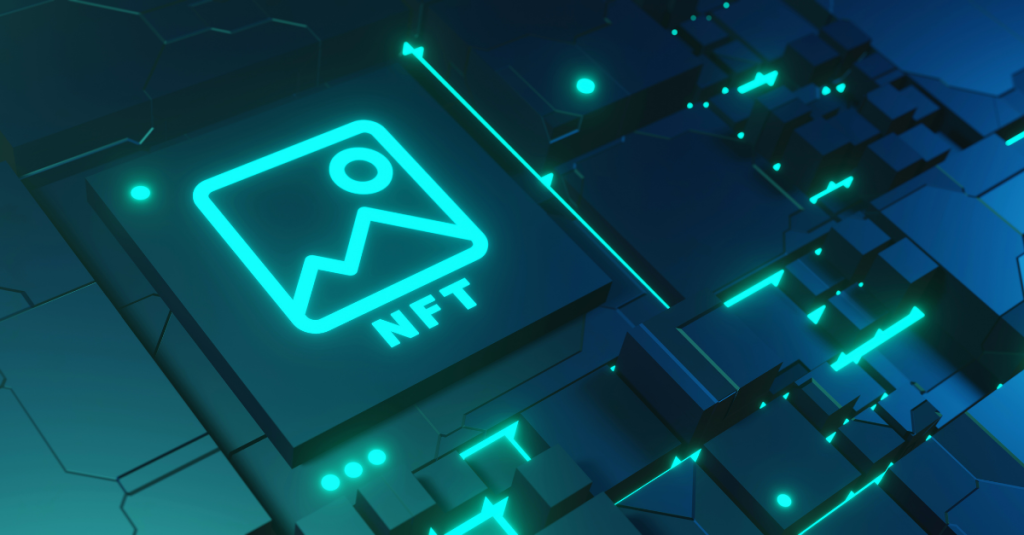
3. Opportunities Presented by NFTs in Marketing
3.1 Enhanced Consumer Engagement
NFTs provide brands with the opportunity to foster more meaningful interactions with their customers. As digital ownership becomes more prevalent, consumers expect a higher level of involvement with the products they purchase. NFTs allow brands to deliver unique experiences that engage consumers on an emotional level, whether through access to exclusive content, digital collectibles, or virtual communities.
3.2 New Revenue Streams
NFTs enable brands to tap into new revenue models, particularly in the secondary market. When NFTs are resold on various marketplaces, the original creator (the brand) can receive a percentage of each resale transaction. This creates a sustainable revenue stream that goes beyond the initial sale of a product.
Case Study: Nike and Patented NFTs for Shoes
Nike has filed a patent for using NFTs to represent ownership of shoes. By creating digital versions of physical footwear, Nike could track ownership and resale transactions through NFTs. With this model, the company could not only benefit from initial sales but also collect a portion of the profits from secondary sales in the marketplace.
3.3 Expanding Into Virtual Worlds and the Metaverse
The integration of NFTs with virtual worlds is becoming increasingly prevalent. NFTs can represent digital assets that can be used across metaverse platforms, such as virtual real estate, clothing, furniture, or accessories. By creating NFTs that function across different virtual worlds, brands can extend their reach to new audiences and build deeper, more interactive brand experiences in digital spaces.
4. Challenges and Considerations for Brands
4.1 Market Volatility
The NFT market is still highly volatile. Prices for digital collectibles can fluctuate significantly, and brands must carefully assess the risks involved in integrating NFTs into their marketing strategies. Brands need to balance the novelty of NFTs with a long-term, sustainable marketing approach that doesn’t solely rely on market speculation.
4.2 Environmental Concerns
NFTs, particularly those built on Ethereum’s proof-of-work blockchain, have faced criticism for their environmental impact. The process of creating and transacting NFTs consumes substantial energy, leading to concerns about their carbon footprint. Brands should be mindful of these concerns and look for more eco-friendly alternatives, such as proof-of-stake blockchains or platforms that offset their carbon emissions.
4.3 Legal and Regulatory Issues
The legal landscape surrounding NFTs remains unclear in many regions. Issues around intellectual property, copyright, and consumer protection must be addressed as more brands enter the NFT space. Brands must ensure that they have clear terms of service and ownership rights to avoid potential legal disputes.
Conclusion
NFTs have opened up new avenues for brands to engage with their audiences in innovative and impactful ways. By creating unique digital assets, offering exclusive experiences, and building loyalty programs, brands can deepen their relationship with consumers and open up new revenue streams. The intersection of NFTs and marketing presents a compelling opportunity to innovate and differentiate in a competitive landscape.
However, as with any emerging technology, brands must carefully consider the risks and challenges associated with NFTs, including market volatility, environmental concerns,
and regulatory uncertainty. When approached strategically, NFTs offer the potential to revolutionize consumer-brand interactions and pave the way for a new era of digital marketing.
As the NFT space continues to evolve, brands that embrace this technology early and thoughtfully will likely reap the benefits of engaging a more connected, digitally savvy, and loyal consumer base.



















